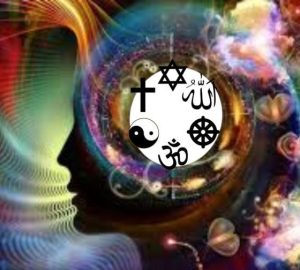The issue of Islamic radicalism which ultimately gave birth to acts of terrorism is not only a problem for Southeast Asia, but also the world. In various media, especially social media, people are often served with news about radical attitudes in religion. Religious radicalism is a form of socio-religious movement.
Literally, religious radicals are an expression of sacred anger against racial, ethnic and religious discrimination. Religious radicalism is understood as a way for someone to fight for his religious beliefs. They fight without compromise and if necessary by means of anarchism and violence. (Nuhrison, 2002).
Dawam Rahardjo put forward 4 hypotheses to be the background of radical Islam in Indonesia; First, the influence of transnational Islamic movements such as Ikhwan Al-Muslimiin, Hizbur Tahrir, Wahabism of Saudi Arabia, Islamic Taliban, Al-Qaeda, which all aspire to uphold Islamic law in all areas of life.
Secondly, the influence of democratization euphoria in Indonesia, which was interpreted as an opportunity for the emergence of radical Islamic movements which were silenced during the New Order and forced by the secular authoritarian government. Third, the failure to enforce a democratic law state has given rise to an inspiration to uphold Islamic law, something that is fundamentally contrary to a secular democratic legal system.
Fourth, the failure of the dakwah movement which is rahmatan lil ‘alamin, which is tolerant of different and inclusive religious beliefs. The development of an exclusive missionary movement and intolerance towards diversity. (M.Dawan Rahardjo).
Radicalism requires changes, alterations, and destruction of a system in society to its roots by using symbols and religious jargon. They fight without compromise and if necessary by means of violence. Radicalism wants a total change in conditions or all aspects of people’s lives based on puritanical and conservative religious ideologies.
Religion is a fundamental fundamental factor in various cases of local, regional, national and international violence. Religion can be a very cruel and deadly killing tool. (Radical) violence in religion not only threatens national pluralism, but also the integrity of the nation and state.
Muhammad Sopyan Sauri, a former terrorist, shared information with Halaqah Kyai participants on how religion-based violence perpetrators used religious symbols, echoed religious jargon;
“Returning to God is the only way we can get happiness in the world and the hereafter”, Only the law of God can save humanity from the long tribulations of life,” he said.
Calling on the arguments of religion, “Whosoever does not rule by the law of God, he is an infidel, zindik, unjust and fasik (perfidious), shouting the words of tawhid.” These holy sentences will be continued to be spoken in various corners of the earth.
They make it the most powerful weapon in subjugating political opponents or ideologies while providing heart-warming hope or even manipulating a powerless society. With these holy sentences, every individual or community, a particular line of belief or religion that is not in line or not the same as the one he believes is accused of against God, and therefore must be crushed.
Likewise with cultural expressions, kiss hands to non-mahram, perform grave pilgrimage, perform preaching, enlightenment and recite Surah Yassin, tawassul and others, are considered practices that are very misleading, musrik, heresy and deviate from the teachings of the Koran and Sunnah. All attitudes, expressions, and individual and social arguments of the community are faced with the power of weapons.
Artikel ini juga tersedia dalam bahasa:
 Indonesian
Indonesian




